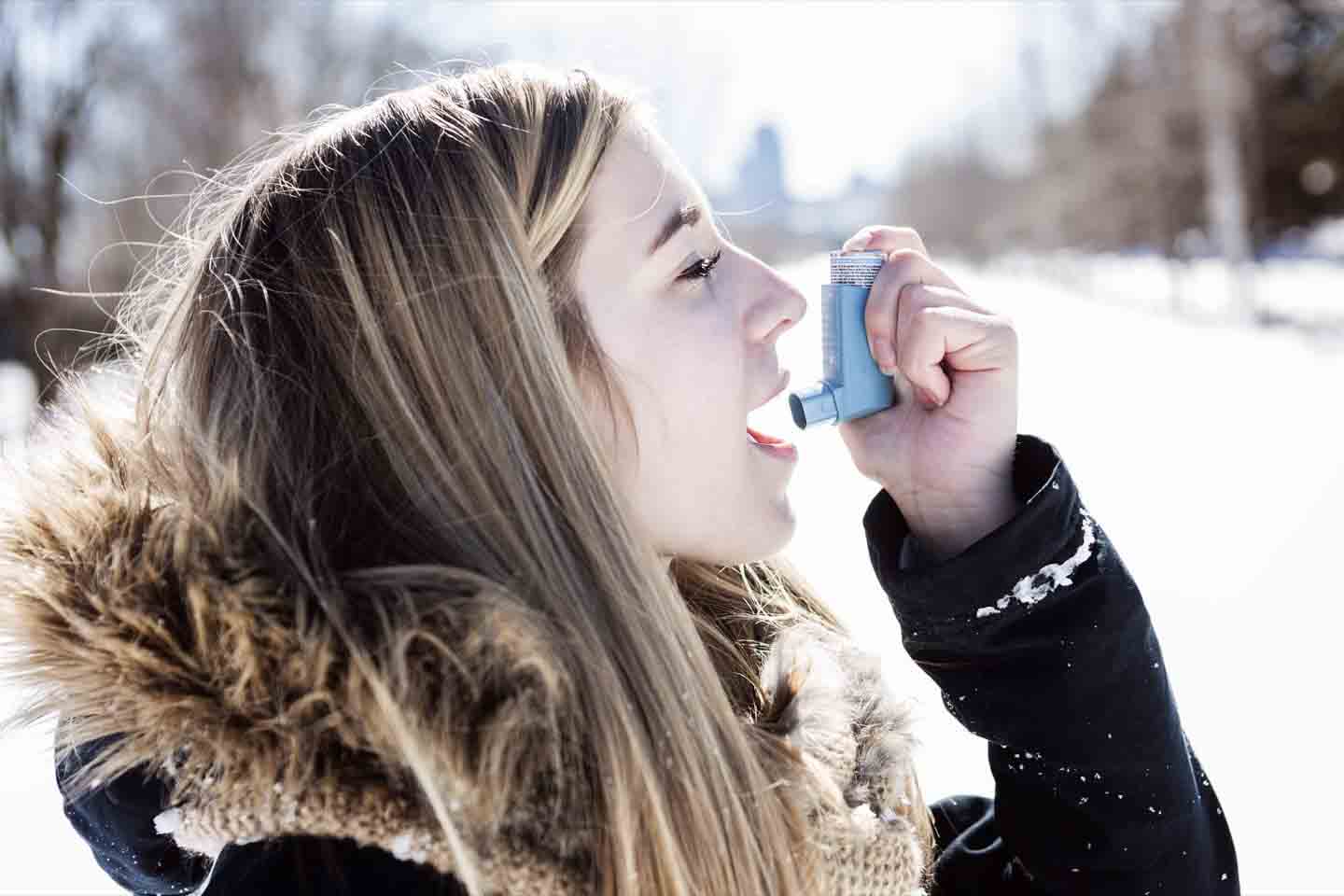Managing asthma attacks is an important part of staying healthy all year long. But as the temperature dips, asthma attacks may become more common. The winter brings colder weather and makes us spend more time indoors, which can increase the risk of an asthma attack. There are simple things you can do to prevent asthma attacks in winter.
Stay Healthy
A cold or the flu can also trigger asthma in cold weather since these illnesses are much more common in the winter. Keep yourself and your family healthy:
Breathe with your nose.
Wash your hands regularly.
Avoid people who are sick.
Get a flu shot.
Sneeze and cough into a tissue or your elbow.
Eat healthily.
Get plenty of rest.
Avoid winter asthma triggers
Asthma triggers vary among different individuals. Some common triggers are mold, dust, pet dander and others. As you spend more time inside, you have more exposure to these common indoor allergens. The winter can also bring unique triggers, like smoke from a fire.
Don’t sit near the fireplace. Keep pets out of the bedroom. Have someone else dust and vacuum. Use allergen covers on mattresses and pillows. Wash bedding in hot water once a week.Keep warm
Cold air can trigger your lungs to produce histamine, which can cause an asthma flare in the winter. Stay warm all season to reduce your risk of an asthma attack:
Bundle up in a warm coat and gloves, cover your nose and mouth with a scarf. Warm-up before working out. Exercise indoors. Get a humidifier.Be proactive
Stay one step ahead of asthma in cold weather by being proactive. Remember to:
Take your medicines prescribed by your doctor without fail. Carry your inhaler when you head outdoors. Use a rescue inhaler 10 to 15 minutes before heading outside. Always have an asthma action plan. Manage your stress. Avoid secondhand smoke. Drink plenty of water.Even after following all this, if you find yourself having more frequent flares, schedule an appointment with your doctor so that, you can make a plan to better control asthma in cold weather.

 Winters have started. Cold, dry air, and the common cold are very common in winter but problematic for asthma patients. With these healthy tips, stay healthy and don’t let these worsen your asthma symptoms
Winters have started. Cold, dry air, and the common cold are very common in winter but problematic for asthma patients. With these healthy tips, stay healthy and don’t let these worsen your asthma symptoms










.jpeg)

.jpg)







.jpeg)



.jpg)


.jpg)




.jpg)


